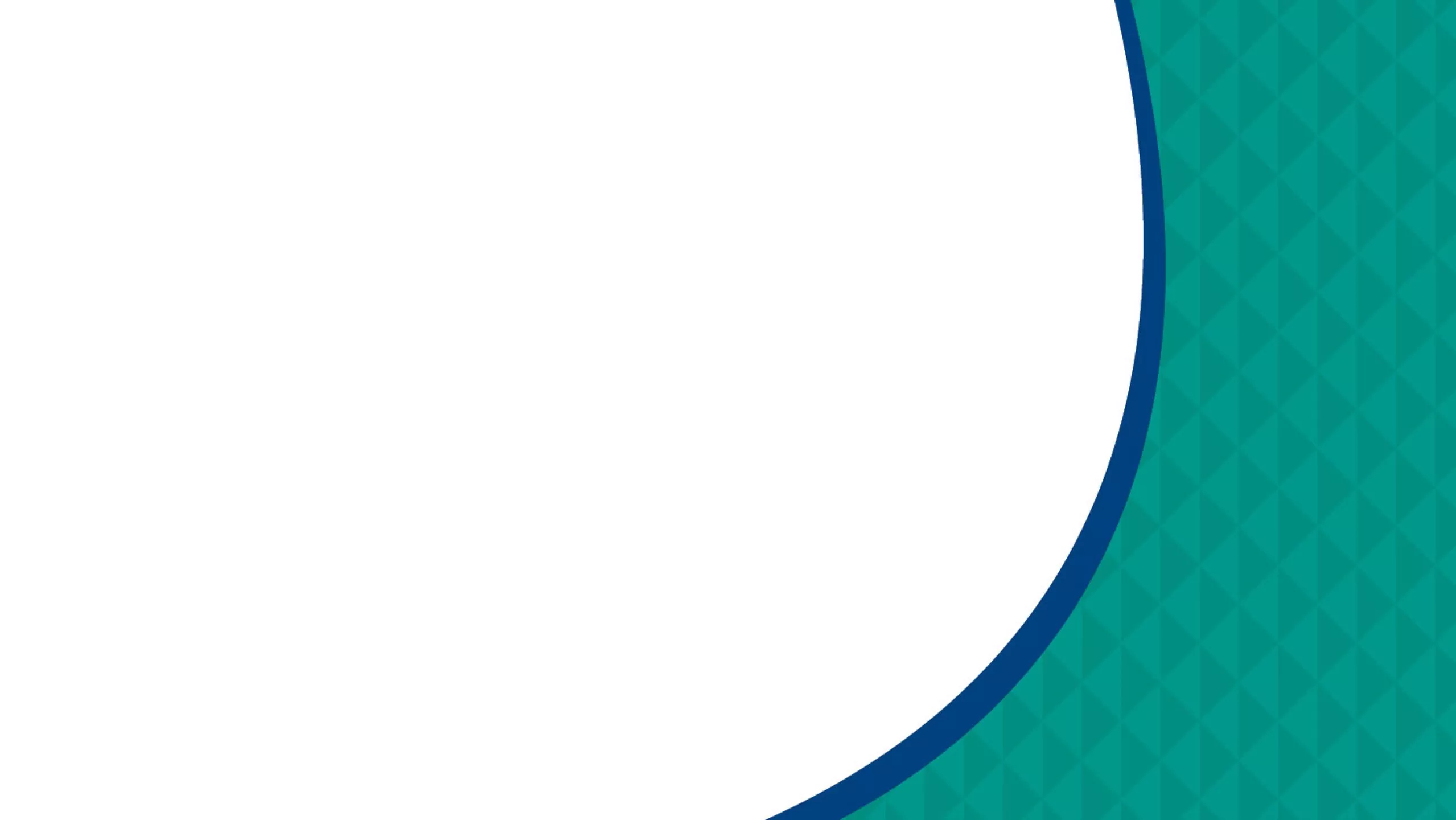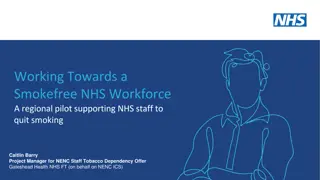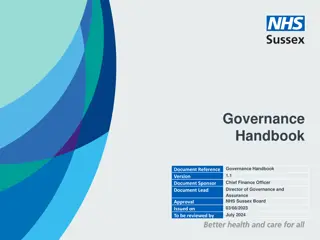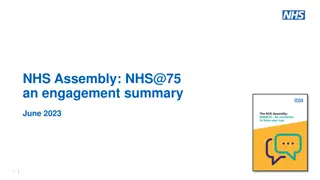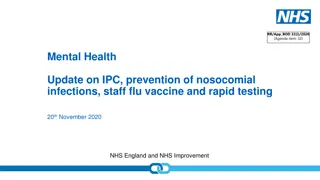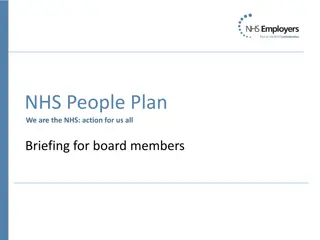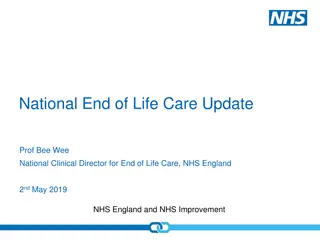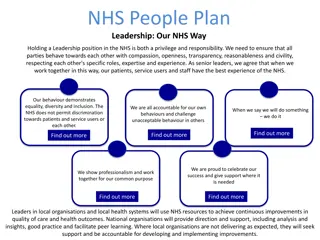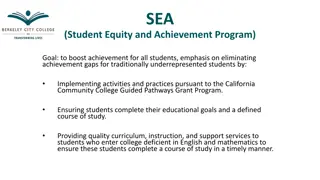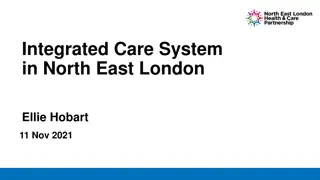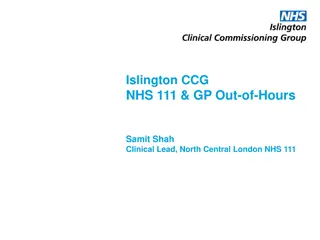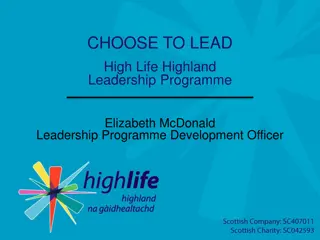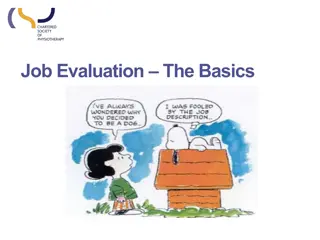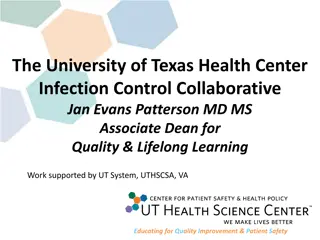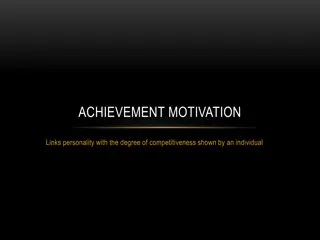Collaborative Achievement in Quality Improvement at NHS Highland
Joan-Marie Sutherland, a Quality Improvement Practitioner at NHS Highland, shares their achievements, success factors, challenges overcome, and strategies for improving Acute Kidney Injury care. Key elements include dedicated QI support, staff engagement, project prioritization, building relationships, and enhancing clinical leadership. The collaborative effort has focused on establishing the right team and skills, implementing AKI care bundles, and reinforcing a culture of quality improvement. Challenges like gaps in support and data access were tackled through teamwork and system redesign.
Download Presentation

Please find below an Image/Link to download the presentation.
The content on the website is provided AS IS for your information and personal use only. It may not be sold, licensed, or shared on other websites without obtaining consent from the author. Download presentation by click this link. If you encounter any issues during the download, it is possible that the publisher has removed the file from their server.
E N D
Presentation Transcript
NHS Highland NHS Highland Getting the Basics Right Joan-Marie Sutherland Quality Improvement Practitioner #AKISummit
What is your biggest achievement in the What is your biggest achievement in the collaborative? collaborative? #AKISummit Dedicated QI support since December 2018 Staff engagement
What was key to your success? What was key to your success? #AKISummit Re-establishing and prioritising the project Building relationships Identifying early adopters Raising awareness of AKI and fluids Clinical leadership and expertise
#AKISummit Getting the right team and skills in place to establish conditions for improvement
#AKISummit SPSP Event AKI, NEWS and Sepsis What will I put into practice? AKI, fluids, development of leadership and QI culture reinforcement
What challenges have you overcome? What challenges have you overcome? #AKISummit Version 0.7 ACUTE KIDNEY INJURY CARE BUNDLE SPSP FOR PDSA TESTIING MARCH 2019 Dr Stewart Lambie Date: Time: NHS Highland Having a gap in dedicated QI support Building relationships Re-energise teams with the project work Redesigned the AKI bundle and have started testing Data + linking systems Accessing data Understanding our data Establishing what we will focus on Patient Details / Label Name: Lead Consultant: Acute Kidney Injury (AKI) Bundle CHI: Doctor/ANP........................................................... RECOGNISE (Note E-Alert ) Reason for Admission Current Creatinine (Umol/L)................................ AKI Grade: 1 ........ 1.5 1.9 x baseline creatinine Baseline Creatinine Umol/L)...................................... 2 ......... 3 ........ 2 2.9 x baseline creatinine Acute Kidney Injury Definition: Increase in Creatinine by > (26.5 Umol/L) within 48 hours OR Increase in Creatinine by > 1.5 times baseline within the prior 7 days * Refer to AKI guideline and supporting documentation on NHSH Intranet See Overleaf * 3 > x baseline creatinine RESPOND Priority Care Action Done Tick N/A Tick Guidance ( circle) 1. Sepsis 6 Protocol * NHSH Intranet Screen for Sepsis 1. Hyper: Restrict and Diuretic 2. Hypo: Resuscitate 3 Euvo : Target fluids & Sustain 4. Oral and/or IV Assess Hyper/Hypo/Euvolaemia Plan Fluid Goals on Fluid Balance Chart 1. Bladder scan and /or ultrasound: (All stage 3 and /or suspected obstruction) 2. Urinary Catheterisation if required for suspected obstruction and/or monitoring of output Treat Obstruction Urinary Catheterisation 1. Document result in notes Perform Urinalysis 1. STOP :Diuretics, Aminoglycosides, ACE inhibitors/ARB, Metformin, other hypertensive's, NSAIDs) 2. AVOID: High risk medicines Gentamicin, co-trimoxazole and any contrast media 3. ADJUST: Digoxin, opoids, LMWH e.g enoxaparin, penicillins Stop/ Avoid /Adjust TOXIC Medicines REVIEW : Day One Priority Care Action Done Tick N/A Tick Guidance ( circle) 1. Daily FBC, U&E s, bone profile and venous bicarbonate (more frequent for hyperkalaemia) 2. Review urinalysis and ultrasound results Daily Tests 1. Daily review of TOXIC medicines above 2. Document plan to re-instate medicaitons Daily Review of Medicines 1. Daily Fluid Balance Chart and Fluid Prescription Sheet with Daily Goals 2. Daily Weights 3. Documented frequency of NEWS Daily Goals 1. Stage 3 unclear cause 2. Suspected intrinsic renal disease 3. No Improvement > 24 hours 4. Dialysis may be required Renal referral Doctor /ANP Name .........................................................Sign.....................................Position.................Bleep..................
What is next for AKI in your board? What is next for AKI in your board? #AKISummit Continue testing current AKI bundle ANP, medical Process measures test data collection tool Awareness raising / education in pilot areas commences next week Shared learning Continue with the collaborative for next 12 months
Questions? Questions? #AKISummit


